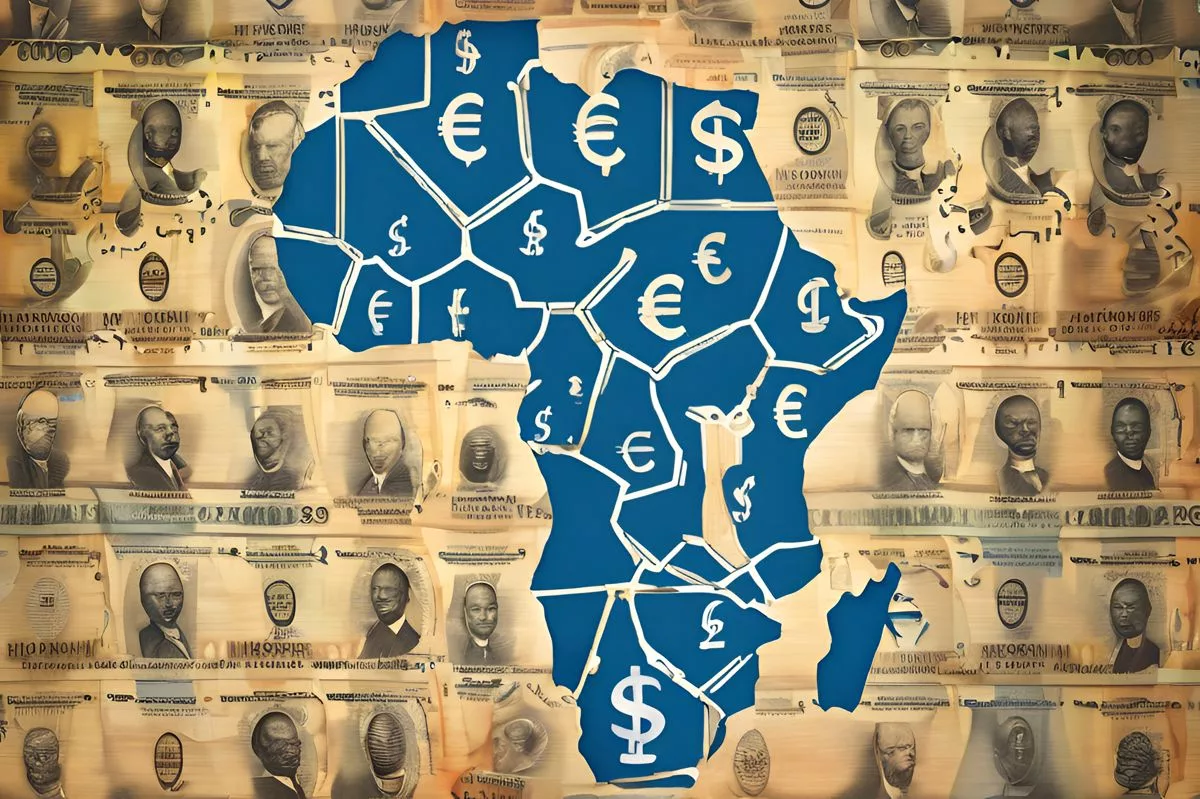South Africa reigns as Africa’s primary wealth hub, with Johannesburg being the continent’s most affluent city, home to 12,300 millionaires, 25 centi-millionaires, and two billionaires. Cape Town follows closely in second place, with 7,400 millionaires, 28 centi-millionaires, and one billionaire. These rankings highlight the concentration of wealth within specific nations and cities, with South Africa possessing more than double the number of high-net-worth individuals compared to any other African country. The 2024 African Wealth Report showcases the continent’s financial landscape and underscores its growing economic power.
What is Africa’s primary wealth hub?
South Africa is Africa’s primary wealth hub, according to the 2024 African Wealth Report. The report highlights South Africa’s affluent superiority across the continent and identifies Johannesburg as the most affluent city in Africa with 12,300 millionaires, 25 centi-millionaires, and two billionaires. Cape Town is the second wealthiest city in Africa with 7,400 millionaires, 28 centi-millionaires, and one billionaire. South Africa claims the presence of 37,400 millionaires, 102 centi-millionaires, and five billionaires.
Africa’s Primary Wealth Hub: South Africa
South Africa, traditionally perceived as Africa’s entryway, is celebrated for its diverse landscapes, vibrant culture, and ancient history extending over hundreds of years. However, a recent study presents a fresh perspective of the nation, highlighting its role as the leading wealth center of the continent.
The 2024 African Wealth Report, a combined initiative between international wealth advisory Henley & Partners and worldwide wealth intelligence associate New World Wealth, spotlights South Africa’s affluent superiority across the continent. This is the ninth installment of this report, spotlighting high-net-worth individuals (HNWIs), categorized as those who have a liquid, investable wealth of over $1 million or R19 million.
Cities Leading in African Wealth
Johannesburg finds itself at the pinnacle of African wealth, functioning as the vibrant core of South Africa. This city, known for its robust economy and cosmopolitan allure, is home to 12,300 millionaires, 25 centi-millionaires, and two billionaires. This positions Johannesburg as the most affluent city in Africa.
The scenic city of Cape Town holds the title of being the second wealthiest city on the continent, boasting 7,400 millionaires, 28 centi-millionaires, and one billionaire. This perfect blend of natural splendor and wealth is not limited to Cape Town but extends to other South African regions. Cape Winelands, Durban, Garden Route, and Pretoria also find their place among the top ten wealthiest African locations.
Inconsistencies in Wealth Estimations
Wealth evaluations often generate inconsistencies. For instance, Forbes’ real-time tracking of billionaires lists South Africa as having six billionaires, in contrast to the five reported by the Africa Wealth Report. Johann Rupert and his family, with a worth of $10.4 billion, are considered the wealthiest in South Africa and rank 204th globally.
Although South Africa has seen a 20% reduction in its millionaire population in the last decade, it still harbors more than double the number of HNWIs compared to any other African country. It claims the presence of 37,400 millionaires, 102 centi-millionaires, and five billionaires.
Affluence Across Africa
Following South Africa, Egypt stands as the second wealthiest nation in Africa, trailed by Nigeria, Kenya, Morocco, Mauritius, Algeria, Ethiopia, Ghana, and Namibia, in that order. These ten countries together represent the epitome of African wealth.
The ‘Big 5’ wealth markets of Africa, which include South Africa, Egypt, Nigeria, Kenya, and Morocco, account for a significant 56% of the continent’s millionaires and over an unbelievable 90% of its billionaires.
Africa’s Growing Economic Power
This evaluation of wealth across the continent highlights the increasing economic prowess of Africa, which is much wider than its usual depiction. It sheds light on the concentration of wealth within particular nations and cities, a fact carrying crucial implications for policymakers and businesses aiming to tap into Africa’s economic potential.
The 2024 African Wealth Report offers a priceless glimpse into the continent’s wealth, detailing an intricate picture of the financial landscape, and amplifying the affluence residing within Africa’s borders. It stands as a testament to Africa’s economic strength, and more specifically, the pivotal role South Africa continues to play in forming the continent’s wealth saga.
1. What is Africa’s primary wealth hub?
South Africa is Africa’s primary wealth hub according to the 2024 African Wealth Report. Johannesburg is the most affluent city in Africa with 12,300 millionaires, 25 centi-millionaires, and two billionaires, while Cape Town follows closely in second place with 7,400 millionaires, 28 centi-millionaires, and one billionaire.
2. What is the African Wealth Report?
The African Wealth Report is a joint initiative between international wealth advisory Henley & Partners and worldwide wealth intelligence associate New World Wealth. It is a report that showcases the continent’s financial landscape and underscores its growing economic power, particularly in terms of high-net-worth individuals (HNWIs) who have a liquid, investable wealth of over $1 million or R19 million.
3. Which cities lead in African wealth?
Johannesburg is the most affluent city in Africa, with Cape Town following closely in second place. Other South African regions in the top ten wealthiest African locations include Cape Winelands, Durban, Garden Route, and Pretoria.
4. Are there any inconsistencies in wealth estimations?
Yes, wealth evaluations can generate inconsistencies. For example, Forbes’ real-time tracking of billionaires lists South Africa as having six billionaires, in contrast to the five reported by the African Wealth Report. However, Johann Rupert and his family, with a worth of $10.4 billion, are considered the wealthiest in South Africa and rank 204th globally.
5. Which nations follow South Africa in wealth ranking?
Egypt stands as the second wealthiest nation in Africa, trailed by Nigeria, Kenya, Morocco, Mauritius, Algeria, Ethiopia, Ghana, and Namibia, in that order. These ten countries together represent the epitome of African wealth.
6. What does the African Wealth Report say about Africa’s economic power?
The African Wealth Report highlights the increasing economic power of Africa, which is much wider than its usual depiction. It sheds light on the concentration of wealth within particular nations and cities, a fact carrying crucial implications for policymakers and businesses aiming to tap into Africa’s economic potential.












